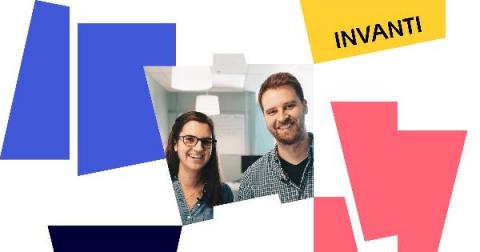Teams | Collaboration | Customer Service | Project Management
February 2021
Building Engaged Teams: Workshop
Building Engaged Teams: Panel
Design Sprints with Miro: "Hacking" Templates to Achieve Your Goals
Interactive workshop activities for virtual collaboration
You know that engagement is the secret sauce for any virtual meeting or workshop. But, it’s tough to get people to stay focused—let alone actively participate. A recent survey found that more than half of workers admit they do other things (like check email or peruse social media) during online meetings. This is where workshop activities come in handy.
Quick Prototyping Workshop X Miro Startup Program
How IT leaders can be more customer centric in 2021
4 templates to help you run meetings with empathy
“Do not do unto others as you would have them do unto you – they might have different tastes.” — George Bernard Shaw When it was time to look back and reflect on my three-month onboarding period at Miro, I was convinced that I’ve never been part of such a collaborative, open team culture. Curiously enough, I’ve never met anyone from my team (or company) in person.
How to run a virtual design thinking workshop in Miro
Since the dawn of time—when humans were still living in caves—we’ve been solving life’s problems through innovation. Back then, we invented fire and hunting spears. Today, we create things like portable toasters and wireless headphone translators to meet our needs. As a product designer, I’ve learned that great design comes down to one important thing: listening. I practice the principles of design thinking to solve problems in a human-centric way.
5 ways IT leaders empower teams to do their best work
Are the people in your organization equipped with the tools they need to get their work done efficiently, effectively, with minimal roadblocks, and maybe—just maybe—have fun while doing so? This is not a distant reality. 2021 will be the year for IT professionals to step up and play a major role in driving organizational success by helping employees thrive despite the challenges presented by distributed work.
How to run a successful planning workshop (even remotely)
Whether you do it quarterly, annually, or even weekly, running a planning workshop can be challenging. You need to make sure everyone understands the big picture and vision. You also need to ensure each person has a voice in the planning process. Finally, you need to lead the group to alignment and verify that they’re clear on next steps. These are the challenges I confronted while leading a goal-setting session at Miro’s recent Executive team offsite (virtual this year).
Startup studio INVANTI turns to Miro to groom entrepreneurs in the heartland
When most people think of startup incubators, they probably imagine famous hubs for startups like Silicon Valley, Seattle, and Austin. The small team at INVANTI is trying to change that paradigm and cultivate entrepreneurs from their startup studio in South Bend, Indiana.













